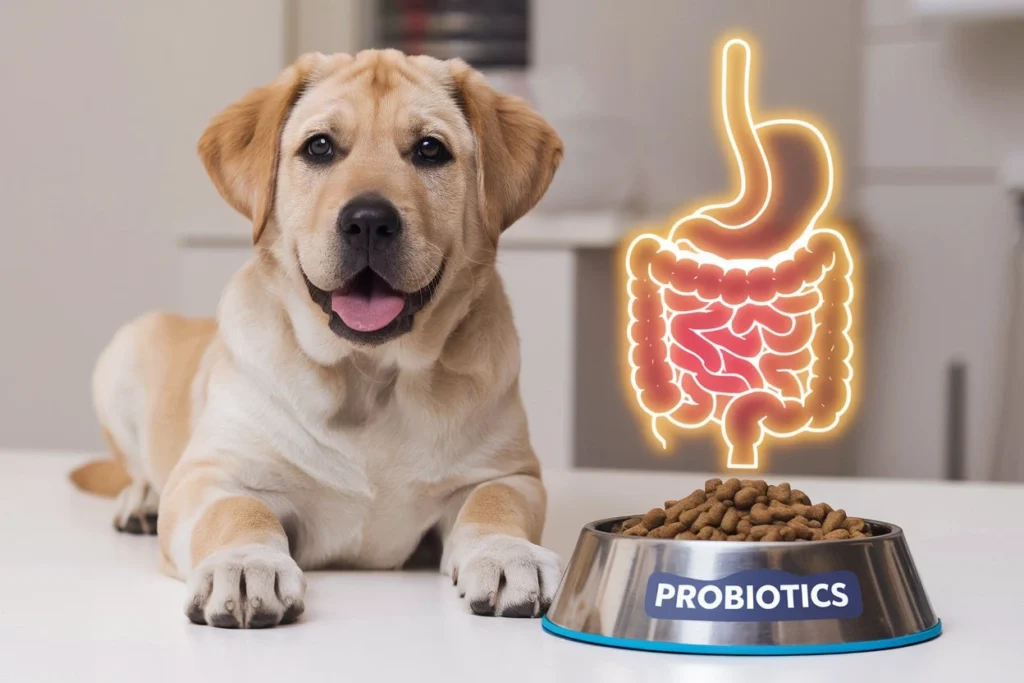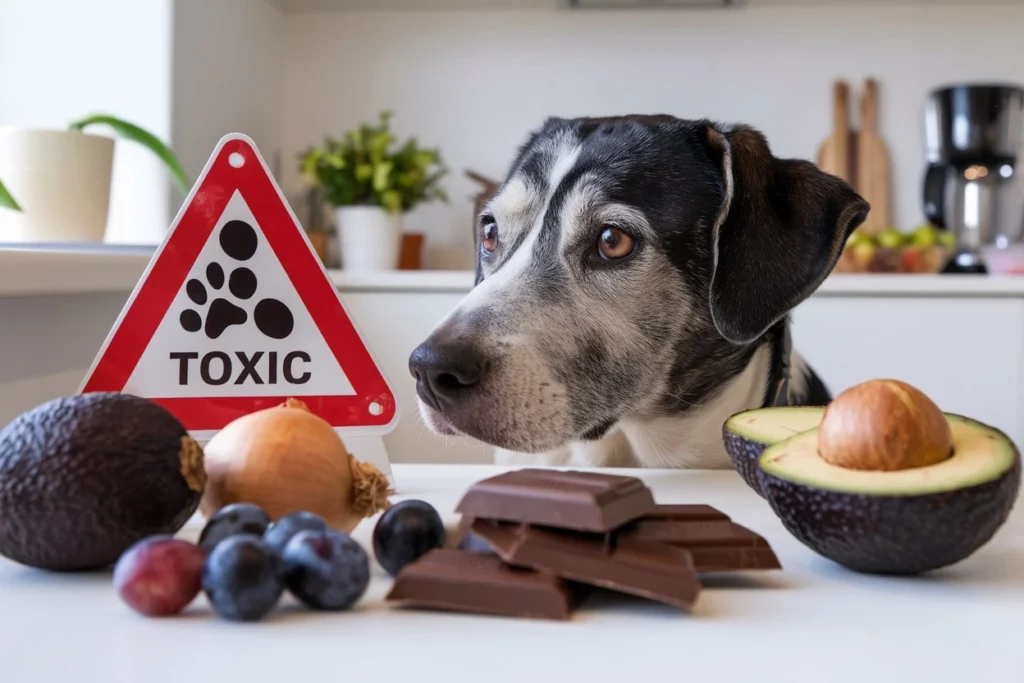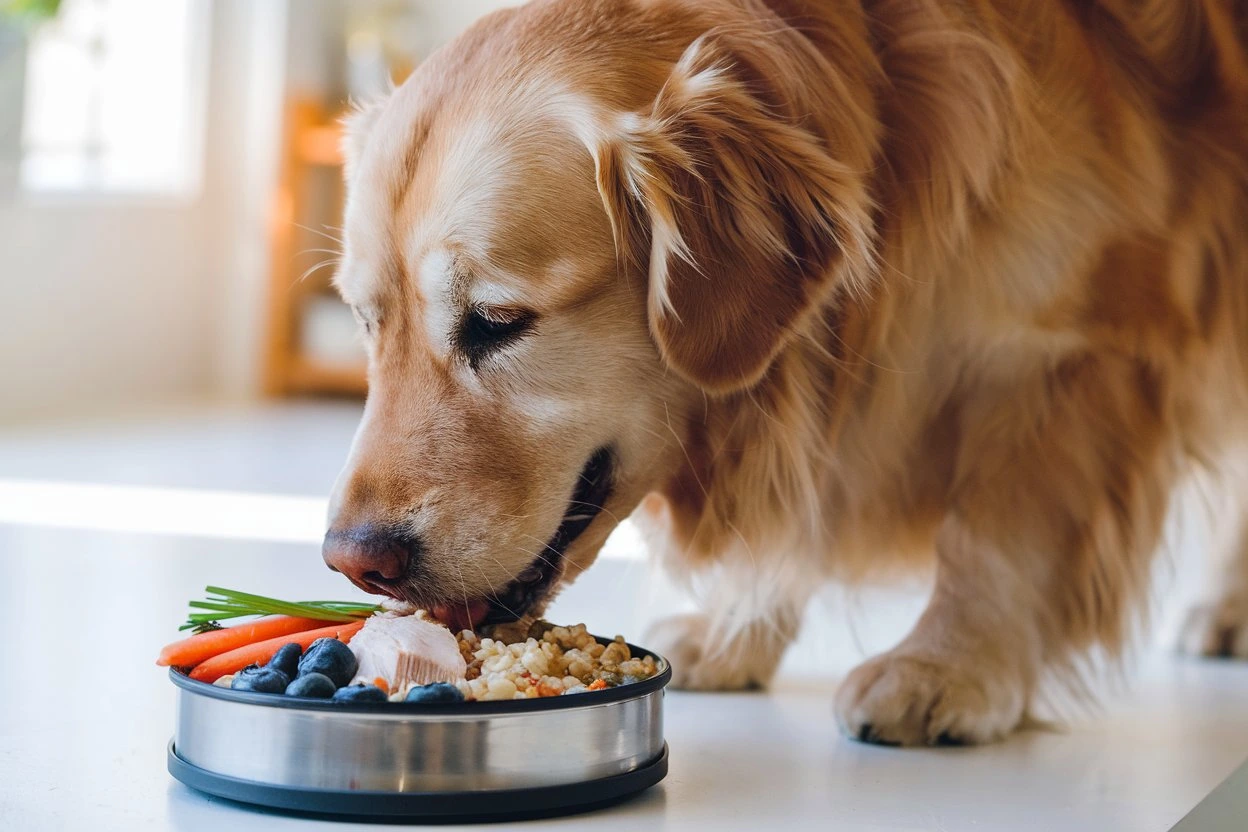My dogs food is essential for overall health and well-being. The right ingredients provide energy, support digestion, and keep the immune system strong. Many commercial dog foods meet basic nutritional needs, but adding fresh, healthy ingredients can make meals more beneficial. Natural additions like lean proteins, vegetables, and supplements improve flavor and boost essential nutrients. Choosing the right extras helps maintain a balanced diet without causing digestive issues. Knowing what to add and what to avoid ensures a safe and nutritious meal.
Why Should You Enhance Your Dogs Food?
The Benefits of Adding Fresh, Healthy Ingredients
My dogs food provides essential nutrients, but fresh, healthy ingredients take nutrition to the next level. Adding natural foods improves digestion, boosts immunity, and enhances overall well-being. Fresh ingredients contain higher levels of vitamins, minerals, and antioxidants than processed foods. They also help reduce exposure to artificial preservatives and fillers that may cause allergies or sensitivities.
Lean meats, fresh vegetables, and dog-safe fruits make meals more appealing while providing variety. These additions improve hydration, support healthy skin and coat, and promote a strong heart. Bone broth, for example, adds flavor while delivering essential nutrients like collagen and glucosamine. Eggs supply high-quality protein and amino acids that support muscle growth. Including natural ingredients ensures a well-rounded diet tailored to a dog’s needs.
How Natural Additions Improve Digestion and Immunity
Fresh ingredients help my dogs food support gut health and immune function. Probiotic-rich foods like yogurt and kefir introduce beneficial bacteria that aid digestion and reduce bloating. Pumpkin is a natural source of fiber that regulates bowel movements and soothes an upset stomach. Leafy greens like spinach and kale provide prebiotics that nourish good bacteria in the gut.
A strong digestive system improves nutrient absorption, leading to better energy levels and overall health. Natural antioxidants from blueberries, carrots, and sweet potatoes strengthen the immune system, helping the body fight infections. Omega-3 fatty acids from salmon oil or flaxseed reduce inflammation and support cognitive function. These nutrient-dense additions keep a dogs body strong and resilient.
Common Mistakes to Avoid When Supplementing Dog Food
Adding fresh ingredients to my dogs food offers many benefits, but mistakes can cause health problems. One of the biggest mistakes is introducing too many new foods at once. A sudden change can upset digestion, leading to diarrhea or vomiting. Gradual introduction allows the digestive system to adjust without discomfort.
Some foods that seem healthy for humans can be harmful to dogs. Grapes, onions, garlic, and chocolate are toxic and must be avoided. Overfeeding fatty foods like cheese or bacon increases the risk of pancreatitis and obesity. Portion control is essential to maintaining a balanced diet.
Another mistake is relying too much on supplements without consulting a veterinarian. While glucosamine, probiotics, and vitamins improve health, excessive supplementation can disrupt natural nutrient balance. Monitoring ingredient choices and portion sizes ensures a dog receives the right nutrition without unwanted side effects.
Protein-Packed Additions for Better Nutrition
Cooked Meats: A Protein Powerhouse for My Dogs Food
Adding cooked meats to my dogs food provides high-quality protein that supports muscle development, energy levels, and overall health. Lean meats contain essential amino acids, iron, and B vitamins, which promote strong bones, a shiny coat, and a healthy heart.
Best Cooked Meats for Dogs
- Chicken – A lean, easily digestible protein source that supports muscle growth. Always remove bones and skin before serving.
- Turkey – Low in fat and rich in essential nutrients like zinc and selenium, which strengthen the immune system.
- Beef – Packed with iron and vitamin B12, which boost red blood cell production and keep energy levels high.
- Lamb – A great alternative protein for dogs with food sensitivities, providing healthy fats and essential nutrients.
How to Prepare Cooked Meats for Dogs
- Cook meats without seasoning, garlic, onions, or excessive oil.
- Avoid processed meats like sausage, bacon, or deli meats, which contain high sodium and preservatives.
- Cut meats into small, bite-sized pieces to prevent choking hazards.
For small breed dogs that are picky eaters, incorporating lean cooked meats can enhance palatability. Explore more options in our guide to the best dog foods for picky small breeds.
Eggs: A Nutrient-Dense Superfood for Dogs
Eggs are one of the best additions to my dogs food because they provide a complete protein source rich in vitamins and minerals. They contain amino acids that support muscle growth, biotin for a healthy coat, and choline for brain function.
Benefits of Adding Eggs to Dog Food
- Rich in Protein – Helps repair and build muscle tissue.
- Supports Digestion – Easily digestible and gentle on the stomach.
- Boosts Skin and Coat Health – The biotin in eggs improves fur texture and reduces shedding.
How to Safely Feed Eggs to Dogs
- Serve cooked eggs (scrambled, boiled, or poached) to eliminate bacteria like Salmonella.
- Avoid adding salt, butter, or oil when cooking.
- Introduce eggs gradually to monitor for allergies or sensitivities.
Fish and Omega-3s: Essential for Joint and Brain Health
Fish is an excellent addition to my dogs food, providing high-quality protein and omega-3 fatty acids that support skin health, reduce inflammation, and enhance brain function. Omega-3s also improve heart health and help senior dogs with joint pain and arthritis.
Best Fish for Dogs
- Salmon – A top source of omega-3s that promotes a shiny coat and reduces inflammation. Always cook salmon before serving.
- Sardines – Small, nutrient-dense fish packed with calcium and omega-3s. They are low in mercury and safe for dogs.
- Whitefish (Cod, Haddock) – A lean protein option that supports a healthy metabolism.
How to Feed Fish to Dogs Safely
- Cook fish thoroughly to kill parasites and remove bones to prevent choking.
- Avoid fish high in mercury, like tuna, which can be harmful in large amounts.
- Consider adding fish oil supplements for an extra boost of omega-3s.
Fruits and Vegetables Your Dog Will Love
Dog-Safe Fruits: Natural Sweetness with Health Benefits
Adding fruits to my dogs food provides natural vitamins, antioxidants, and fiber that support digestion and immune health. Many fruits offer hydration, essential minerals, and natural sweetness without artificial additives.
Best Dog-Safe Fruits
- Blueberries – High in antioxidants that support brain function and reduce inflammation.
- Apples – A great source of fiber and vitamin C, but always remove the seeds and core.
- Bananas – Rich in potassium and vitamin B6, which help regulate energy and support heart health.
- Watermelon – Provides hydration and essential nutrients, but remove the rind and seeds before serving.
- Strawberries – Packed with vitamin C, which strengthens the immune system and promotes healthy skin.
How to Safely Feed Fruits to Dogs
- Wash fruits thoroughly to remove pesticides and dirt.
- Cut them into bite-sized pieces to prevent choking.
- Avoid toxic fruits like grapes, cherries, and avocados.
- Serve in moderation to prevent excess sugar intake.
Nutrient-Rich Vegetables: Essential Vitamins for a Healthy Diet
Vegetables add fiber, vitamins, and minerals that improve digestion, support the immune system, and promote healthy skin and coat.
Best Vegetables for Dogs
- Carrots – A crunchy snack full of beta-carotene, which supports eye health and immunity.
- Sweet Potatoes are rich in fiber, vitamin A, and antioxidants that aid digestion and reduce inflammation.
- Green Beans – A low-calorie, high-fiber option that promotes a healthy weight.
- Spinach – Provides iron and vitamin K but should be given in small amounts due to oxalates.
- Pumpkin – A natural source of fiber that soothes digestive issues and regulates bowel movements.
How to Feed Vegetables Safely
- Steam or lightly cook vegetables to improve digestibility.
- Chop into small pieces or puree for easy consumption.
- Avoid harmful vegetables like onions, garlic, and raw potatoes.
- Serve in appropriate portions to prevent stomach upset.
The Right Way to Prepare Fruits and Veggies for Dogs
Proper preparation ensures my dogs food remains safe and beneficial. While fresh fruits and vegetables provide great nutrition, incorrect preparation can lead to digestive problems.
Safe Preparation Methods
- Washing – Always rinse fruits and vegetables to remove pesticides and dirt.
- Chopping – Cut food into small, manageable pieces to prevent choking hazards.
- Cooking – Lightly steaming or boiling some vegetables improves digestibility and nutrient absorption.
- Peeling & Deseeding – Remove peels, seeds, and pits from certain fruits like apples, watermelons, and peaches.
Common Mistakes to Avoid
- Feeding toxic produce – Avoid grapes, raisins, cherries, onions, and avocados.
- Overfeeding fiber-rich foods – Too much fiber can cause bloating and stomach discomfort.
- Ignoring portion control – Even healthy fruits contain natural sugars, so moderation is key.
Supplements and Superfoods to Boost Health

Probiotics and Gut Health: Supporting Digestion Naturally
Probiotics support a healthy gut by balancing beneficial bacteria, which enhances digestion and promotes overall well-being. Adding probiotic-rich foods to my dogs food promotes a strong immune system and prevents digestive issues.
Best Probiotic Sources for Dogs
- Plain Yogurt – Contains live cultures that aid digestion and strengthen immunity.
- Kefir – A fermented milk drink with probiotics that support gut health.
- Fermented Vegetables – Small amounts of sauerkraut or kimchi (without spices) offer beneficial bacteria.
- Probiotic Supplements – Available in powders or capsules, ideal for dogs with sensitive stomachs.
Benefits of Probiotics
- Reduces bloating, diarrhea, and constipation.
- Enhances nutrient absorption from food.
- Strengthens the immune system by balancing gut bacteria.
- Helps manage food sensitivities and allergies.
Joint Support: Keeping Dogs Active and Pain-Free
Joint health is essential, especially for aging dogs or breeds prone to arthritis. Certain foods provide anti-inflammatory properties that support mobility and reduce stiffness.
Best Foods for Joint Health
- Bone Broth – Rich in collagen and amino acids that strengthen joints.
- Fatty Fish (Salmon, Sardines) – High in omega-3s, which reduce inflammation.
- Green-Lipped Mussels – A natural source of glucosamine and chondroitin for joint repair.
- Turmeric – Contains curcumin, a natural anti-inflammatory compound.
How These Foods Help
- Lubricate joints and prevent cartilage breakdown.
- Reduce stiffness and improve flexibility.
- Support overall bone and joint strength.
Hydration Boosters: Keeping Dogs Hydrated and Healthy
Staying hydrated plays a key role in digestion, blood circulation, and maintaining body temperature. Some foods naturally increase water intake and keep my dog’s food more hydrating.
Best Hydration-Boosting Foods
| Hydrating Food | Benefits | How to Serve |
|---|---|---|
| Watermelon | High water content and vitamins | Remove seeds and rind, serve in small pieces |
| Cucumber | Refreshing and low-calorie | Slice thinly and mix into meals |
| Bone Broth | Provides hydration and joint support | Serve as a topper or frozen treats |
| Goat’s Milk | Rich in probiotics and electrolytes | Offer in moderation as a liquid treat |
| Zucchini | Packed with water and fiber | Cook lightly or serve raw |
Ensuring my dog stays hydrated helps with digestion, prevents overheating, and supports organ function. Adding water-rich foods is an easy way to boost hydration, especially for dogs that don’t drink enough water.
What to Avoid When Adding to Your Dog’s Food

Dangerous Foods: What to Avoid in My Dog’s Food
Certain foods can be toxic or harmful to dogs, even in small amounts. Avoiding these ingredients ensures my dog stays healthy and free from digestive or toxic reactions.
Toxic Foods for Dogs
- Chocolate & Caffeine – Contains theobromine, which affects the heart and nervous system.
- Grapes & Raisins – Can cause sudden kidney failure, even in small amounts.
- Onions and garlic can harm red blood cells, potentially causing anemia in dogs.
- Avocado – Contains persin, which can cause vomiting and diarrhea.
- Xylitol (Artificial Sweetener) – Found in sugar-free products, it triggers dangerous blood sugar drops.
Other Harmful Foods
- Alcohol & Raw Dough – Can cause alcohol poisoning and bloating.
- Macadamia Nuts – Leads to weakness, tremors, and vomiting.
- Cooked Bones – Can splinter and cause choking or digestive injuries.
- Dairy Products – Many dogs are lactose intolerant, leading to stomach upset.
Keeping these foods away from my dog’s food prevents serious health issues and emergency vet visits.
The Risks of Over-Supplementing Your Dog’s Diet
While adding fresh and nutritious ingredients benefits my dog’s food, too many supplements can cause imbalances and health issues.
Common Over-Supplementation Risks
- Excess Calcium – Leads to skeletal problems in growing puppies.
- Too Much Vitamin A – Causes joint pain, dehydration, and poor coat health.
- High Omega-3 Intake – Can lead to blood clotting issues.
- Iron Overload – May cause liver damage and digestive distress.
How to Prevent Over-Supplementation
- Stick to recommended serving sizes for vitamins and minerals.
- Consult a vet before introducing new supplements.
- Rotate whole food sources instead of relying on excessive additives.
Balanced nutrition is key more is not always better when it comes to my dog’s food.
While adding fresh ingredients can entice picky eaters, it’s essential to maintain balance. Discover tasty solutions that cater to finicky dogs without over-supplementing.
How to Transition New Ingredients Safely
Introducing new foods to my dog’s diet should be done gradually to avoid digestive upset and food aversions.
Step-by-Step Transition Guide
- Start Slow – Add a small amount of the new ingredient alongside regular food.
- Observe Reactions – Monitor for signs of allergies, diarrhea, or discomfort.
- Increase Gradually – If no issues occur, slowly increase the portion over a week.
- Mix Well – Blend new ingredients into meals to encourage acceptance.
- Adjust if Needed – Reduce portions or remove foods if adverse reactions appear.
Signs of a Poor Transition
- Vomiting, diarrhea, or constipation.
- Excessive scratching or skin irritation.
- Loss of appetite or refusal to eat.
A slow and careful transition ensures my dog adapts to new foods safely without digestive issues.
While some human foods are beneficial, others can be toxic. The American Kennel Club provides a comprehensive list of safe and unsafe foods for dogs.
Conclusion: Enhancing My Dog’s Food for Better Health
Providing my dog with a well-balanced diet enriched with fresh, natural ingredients supports overall health, digestion, and longevity. By carefully selecting nutrient-rich additions like cooked meats, eggs, fish, fruits, vegetables, probiotics, and hydration boosters, I can enhance my dog’s meals while ensuring they receive essential vitamins and minerals.
At the same time, it is crucial to avoid toxic foods and be mindful of over-supplementation to prevent nutritional imbalances. A gradual transition when introducing new ingredients helps maintain digestive health and ensures my dog adapts comfortably to dietary changes.
By making informed choices about my dog’s food, I promote a healthier, happier life filled with energy, vitality, and well-being. Proper nutrition is one of the best ways to show care and love for my furry companion every day.

